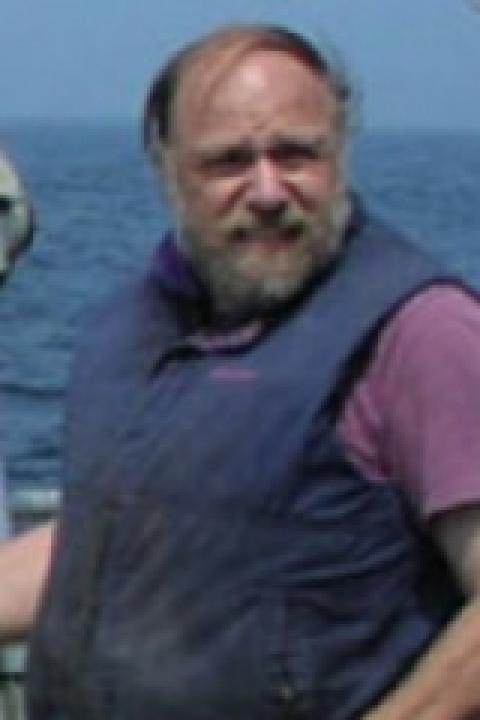
James Irish
Ph.D. Scripps Institution of Oceanography, 1971
Research Areas
Ocean instruments, their calibration, response and the methodology of their use. Buoys, moorings and modeling of moored observing systems. Physical oceanography of the coastal ocean, including waves, tides, currents and water mass property observations and analysis. Acoustic instrumentation for bottom sediment and bedload transport, for remote observations of sediment and for fish surveys.
Research Emphasis
Research involves defining scientific problems in conjunction with other researchers, developing and deploying new instrumentation to collect remote environmental data, understanding instrument calibrations, behavior, and response, and participating in the analysis of these data to improve our understanding of the various processes occurring in the ocean. Specific research activities include:
- Dynamic processes due to the tides and the associated stress, mixing, and advection of material.
- Tidal analysis and predictions from bottom pressure and ocean current observations.
- The generation and propagation of internal waves, internal tides and internal solitary waves.
- Sea-water heating and cooling, water mass formation, and stability and mixing.
- Sediment transport processes, particularly in the coastal ocean under wave forcing.
- Optical and acoustic imaging of suspended sediment, bedload sediment and bedforms in relation to wave and current forcing.
- Development, deployment and evaluation of new, remote oceanographic instrumentation systems utilizing microprocessors and telemetry.
- Development of analysis methods and tools to reduce oceanographic observations.
- A "knowledge-based system" approach to sampling the environment by taking advantage of the power of microprocessors to conditionally sample intermittent oceanic processes.
- Development and use of acoustic, fiber optics, radio, and satellite telemetry techniques to return data from the field and the control remote instruments in the field.
- Development of techniques for using new sensors in the ocean, including understanding the calibrations, calibration histories and the sensor behavior and response effects on data.